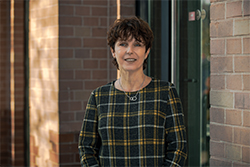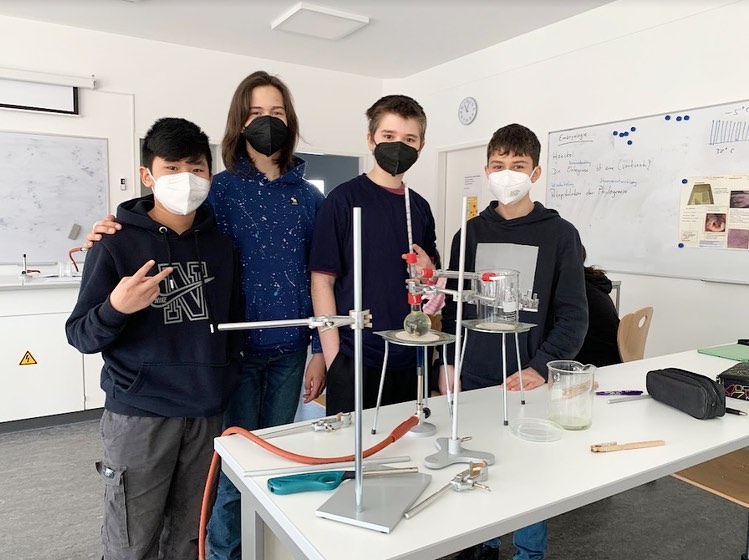
What Project Days at the Mentora Gymnasium look like
Experience from the private sector shows that project work often leads to better, faster, more creative results and increases employee motivation. The project days, which take place regularly at the Mentora Gymnasium, are also a good opportunity to engage students through innovative methods, to teach them to be willing to act and take responsibility and learn independently and strengthen their teamwork and social skills and their self-competence.
Take a look at what our students learned during the recent project days.
Mathematics
As part of the project day in the subject of mathematics, the students of grade 8 visited the Technical University of Berlin and worked on the "Atari Punk Console".
The Atari Punk Console is based on a circuit by Forrest M. Mims III, which was first published in his electronic textbook "Engineer's Notebook: Integrated Circuit Applications" in 1980. It is a simple, small circuit that can produce sounds and is designed to arouse curiosity for your own handiwork of electrical circuits. The name "Atari Punk Console" was only given later, in contrast to the sounds of Atari computers in the '80s. During the workshop at TU Berlin, the students were able to recreate their own mini synthesizers!
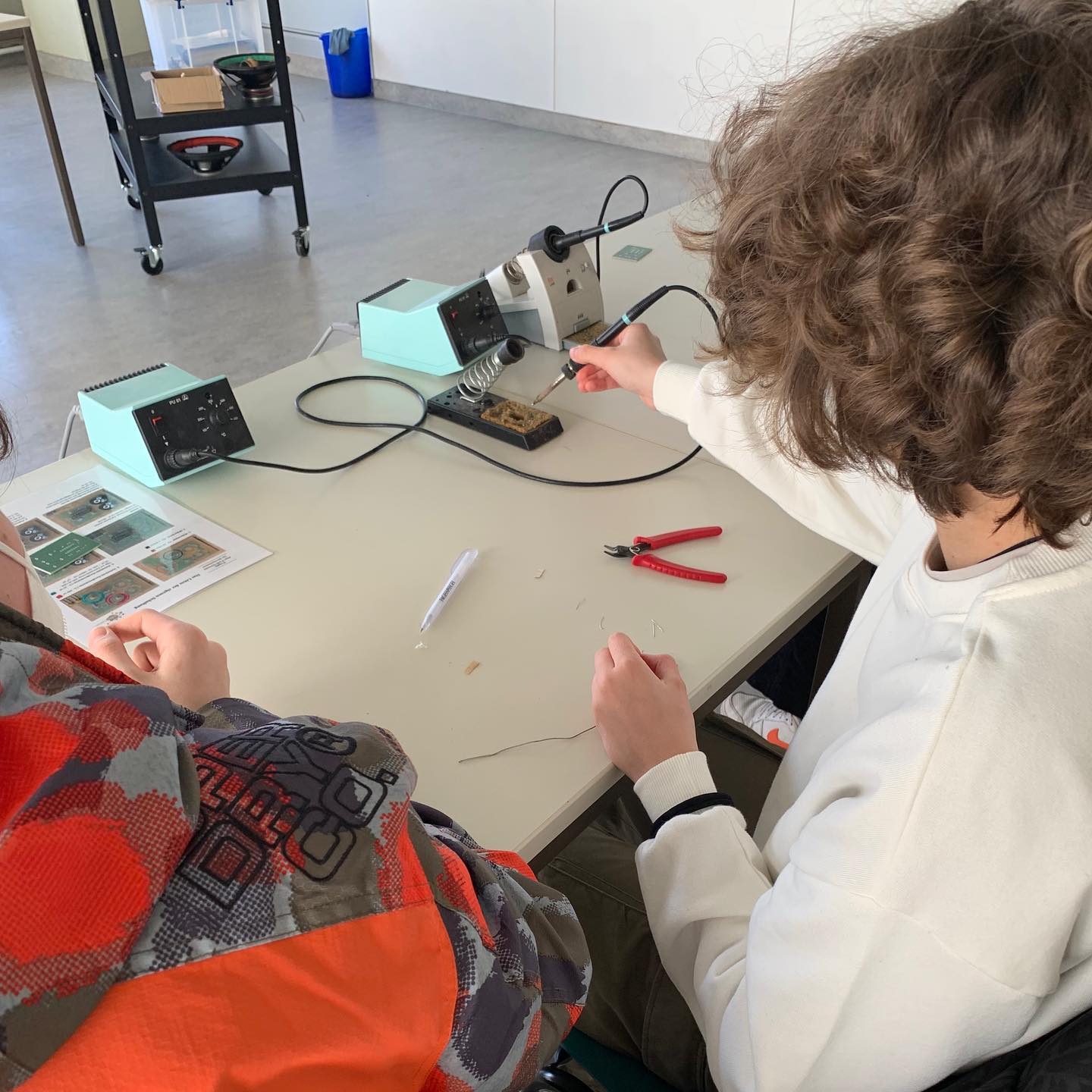
Physics
As part of the project days in physics, the students of grade 8 had a blast. They were tasked with presenting the temperature course of warm and cold water through a chart. They then had to calculate if the end temperature shown in the chart is correct. Possible discrepancies in the result were also analyzed in more detail. Through the experiment, the students learned more about the different heat transfer methods and looked at the possibilities of measuring temperature.
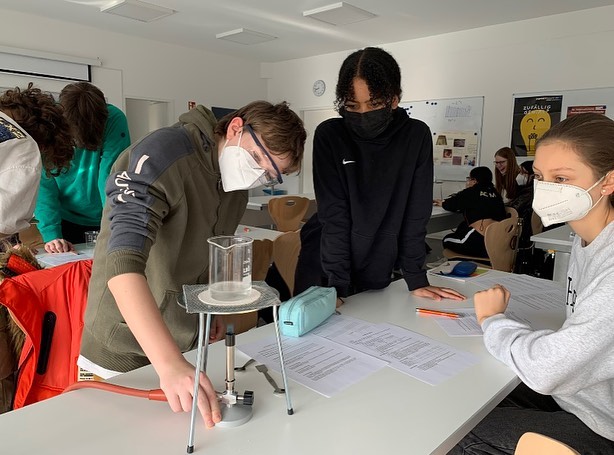
Chemistry
The students of grade 7 had to separate the so-called homogeneous and heterogeneous mixtures through an experiment. Which separation method is best suited to separate a certain mixture into individual fabrics, and how many separation methods are there? Students went through these and other questions. After a detailed introduction to the topic of separation processes, they were well prepared to separate the present mixtures, document the process in detail and then present it factually.
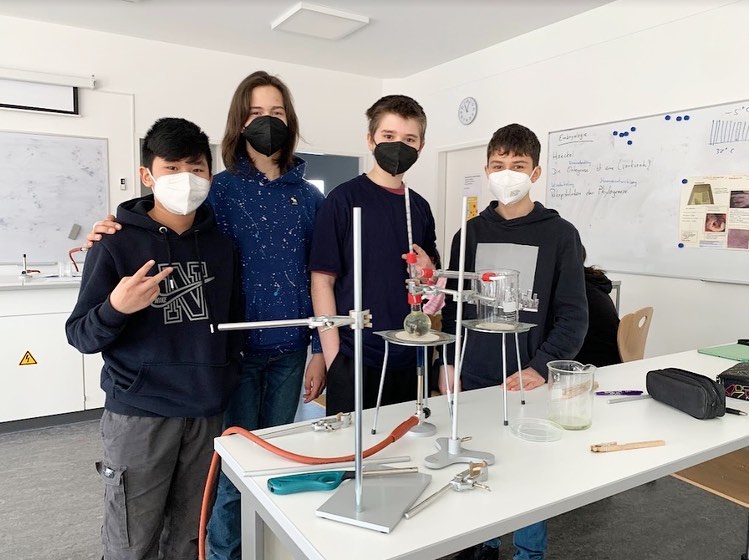
Geography
As part of the project day in Geography, the students of grade 11 dedicated themselves to the topic "Migration and Escape". Three short films on the topics of escape and migration were shown at the Delphi LUX cinema. The European Academy Berlin organised the event with the key question of how one of the most burning topics of European politics can be made tangible in our city. A moderate discussion took place in the aftermath of the three films.
The students were able to gain insight into migration stories and European politics as a whole. Additionally, they learnt about different experiences of escape and migration of refugees from different regions, expanded on their foreknowledge of refugees and their life situation with true stories and their acting skills deepen by working in connection with extracurricular learning.
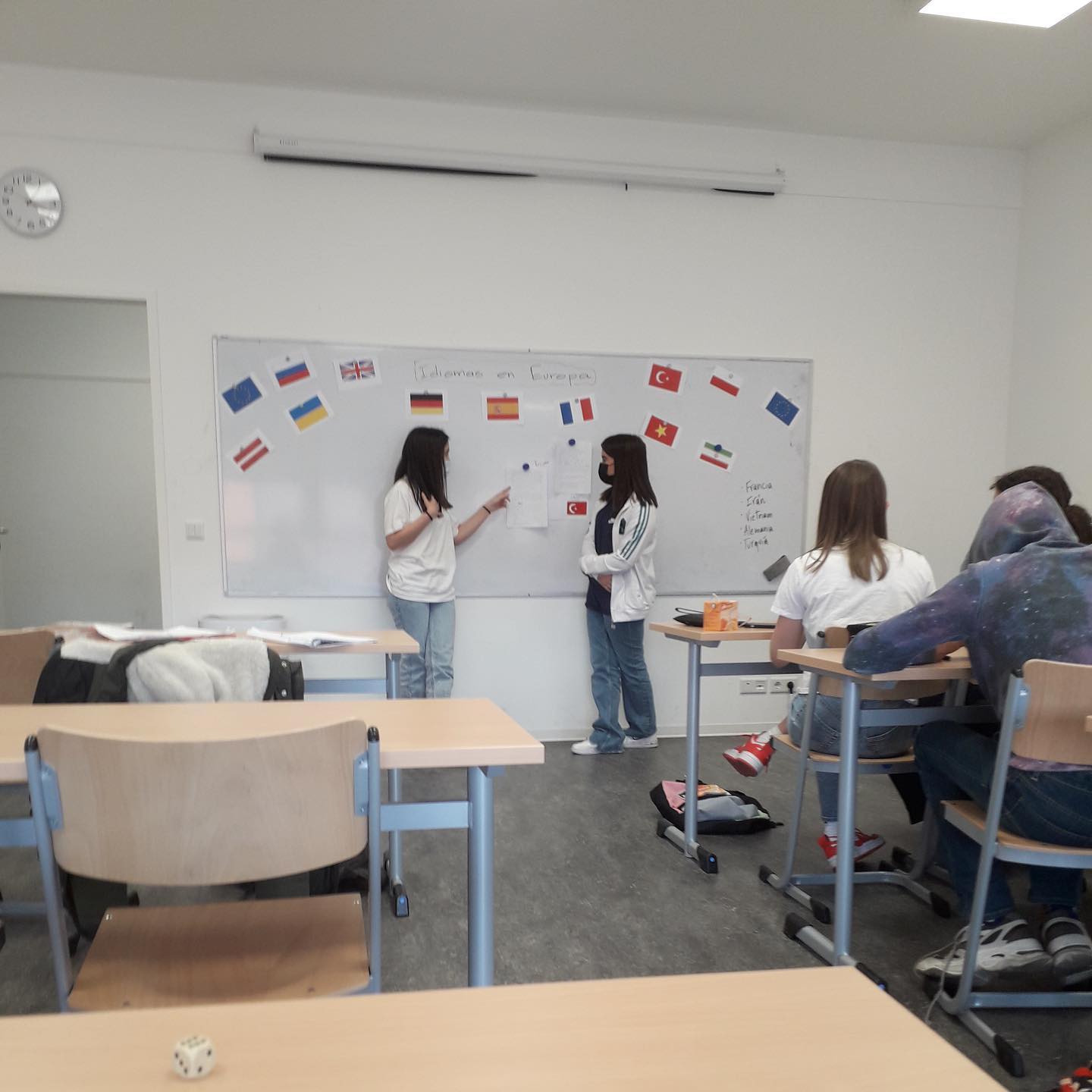
Ethics
As part of the project day on the subject of ethics, our students visited the Futurium - a house of the futures. During the project day, the students had the question "How do we want to live?" in the back of their minds. Amidst an extensive exhibition of many possible futures and the futurium lab where students could experiment with their own ideas, a diverse exchange took place about what the future has to offer.
In particular, with regard to the different ideologies of technology, humans and nature, the students were able to make the connection to ethics and question the ethical principles of the shown futures more accurately.
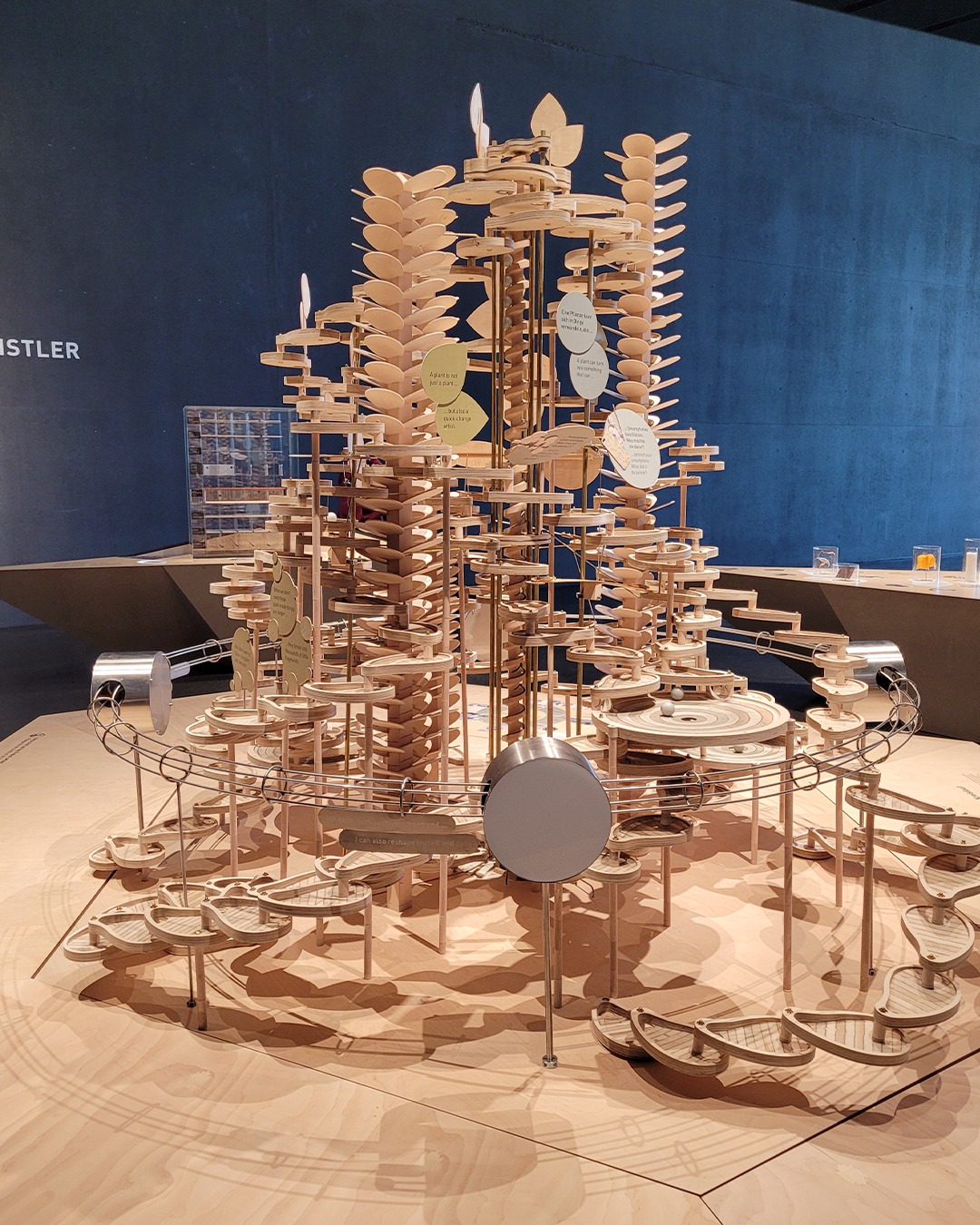
German
In the name of rationality - Are we living in enlightened times? This question was asked by the students of the 11th grade. From selected texts by Kant, Herder, Rousseau and Lessing, the students first worked on the central authors of civic education. On the basis of their insights on the theories of the whistleblowers, they were able to prepare for the subsequent pro-contra debate on the leading question. With the help of the project day, the students were able to practice and expand the following skills: reading, creating and evaluating literary and pragmatic texts.
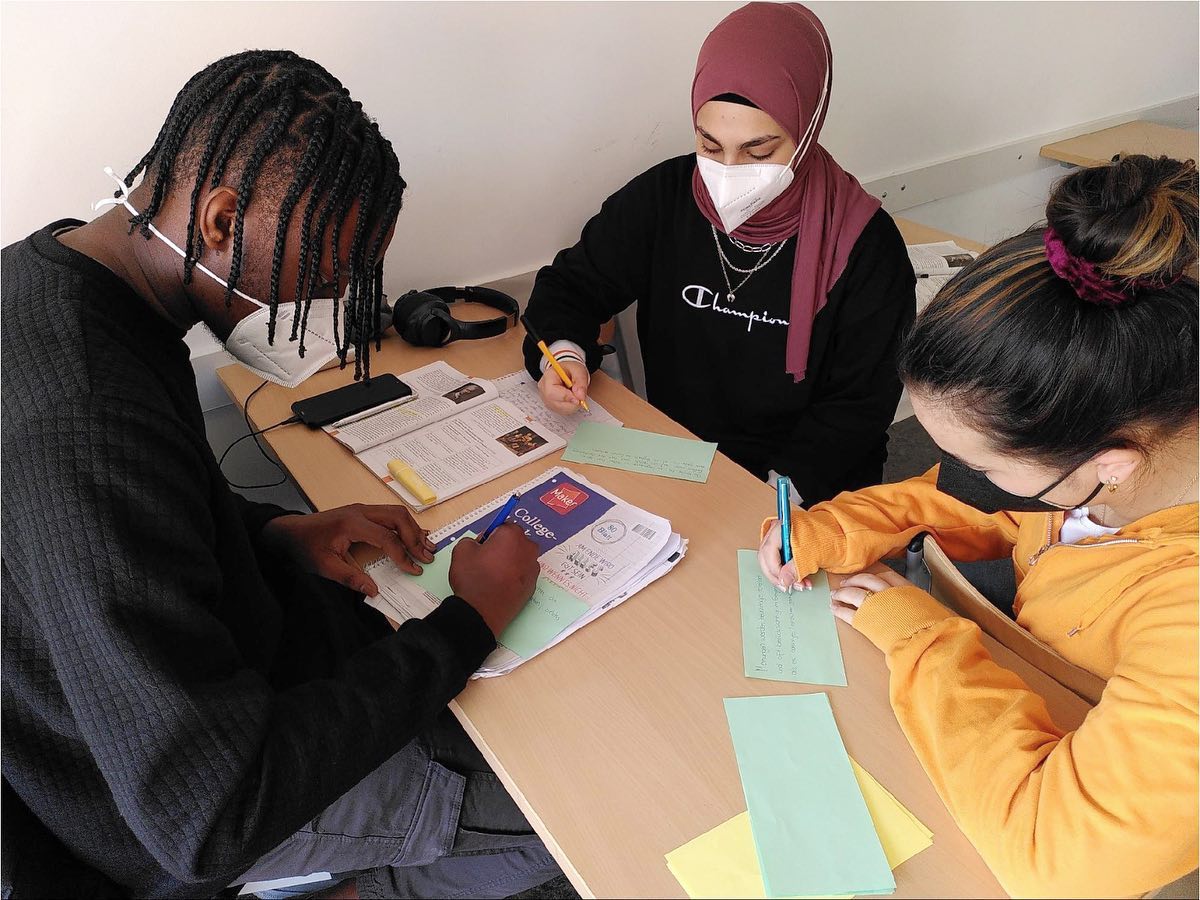
English
This time, our students were analysing British song lyrics. They had the opportunity to analyse lyrics from popular British music and gain a comprehensive overview of British music as a whole. Students learned relevant rhetorical means such as rhythm, tone, use of parables and metaphors, personification, chorus, narrative voice/perspective bridge, and more.
With this knowledge of the aforementioned rhetorical means, they were able to analyse selected songs of contemporary music. Through the lyrics of famous contemporary British songwriters, they also gained an insight into British culture. Additionally, they had the opportunity to write an analysis on how they use their newly acquired skills and understanding of words, phrases and other vocabulary related to song lyrics.
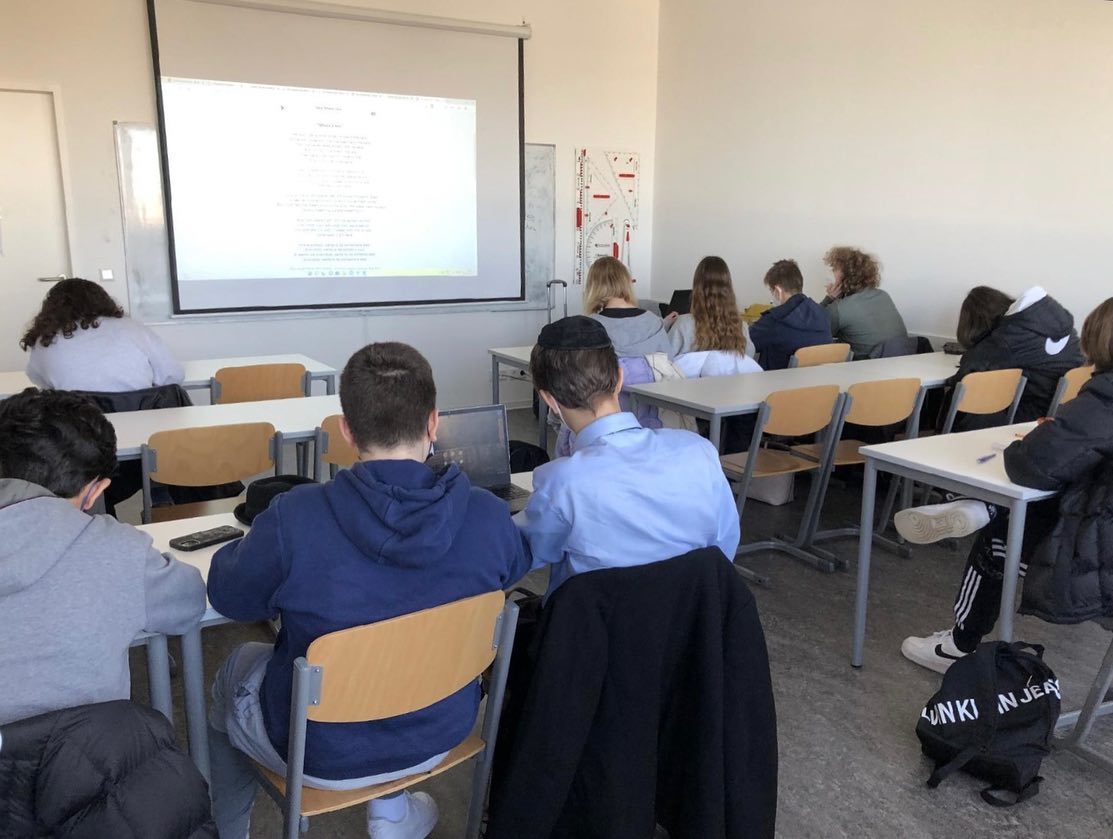
Spanish
Which languages dominate the European space and which of them are the most spoken ones? How can language diversity be promoted and how actually important is linguistic diversity?
These and other questions are for the students of 8th grade as part of the framework of the project days in Spanish. The basis for this was the film "One Day in Europe" from 2005 by Hannah Stöhr. The students dedicated themselves to detailed film analysis and worked on the key events on the topic. For this, they investigated the dialogues, characters and scenes that form language as verbal and nonverbal communication. After that, the students were placed in several groups to work on their posters and introduce languages and countries.
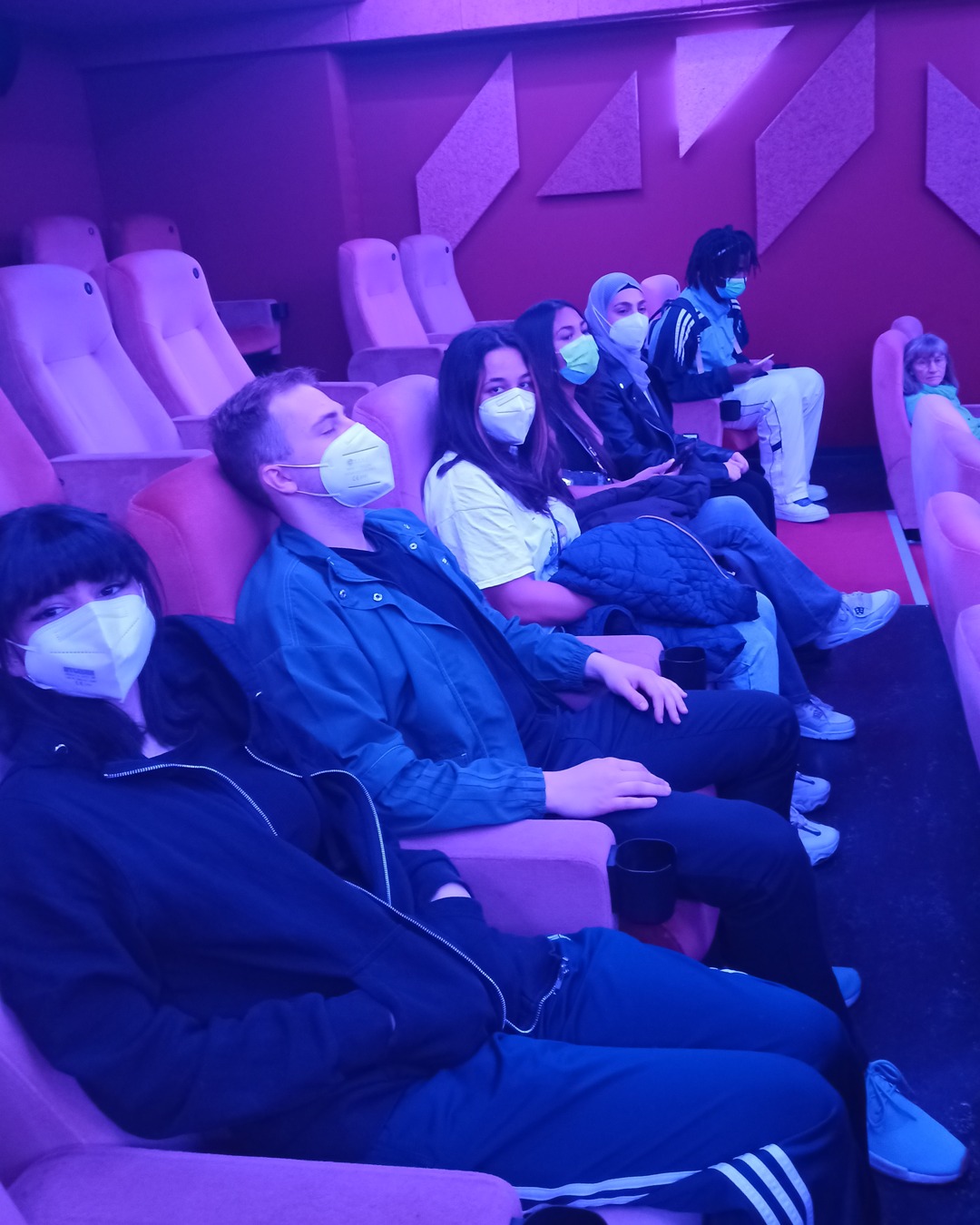
Thank you for taking the time to learn more about our project days. If you want to find out more about Mentora Gymnasium, you can make an appointment and visit our school or take part in one of the regular open days we host.
